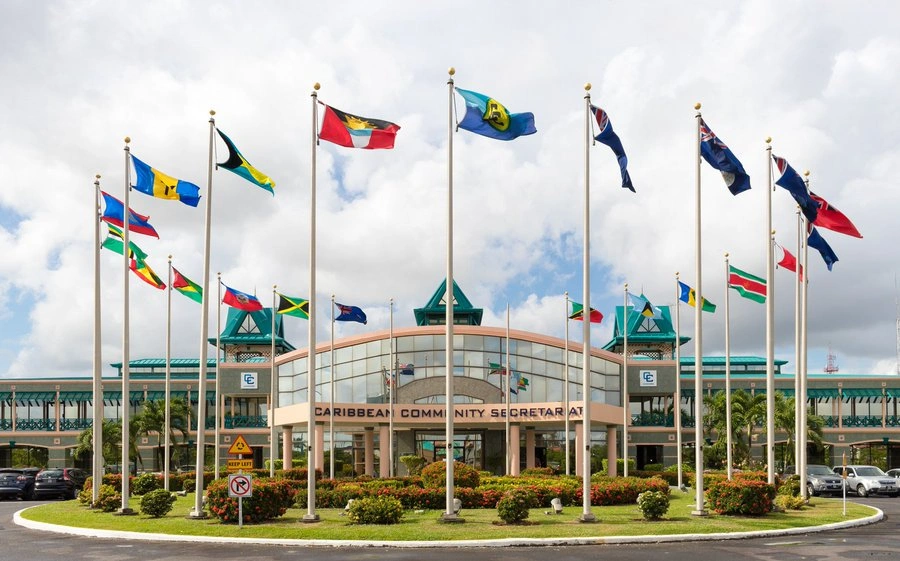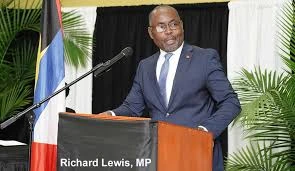Carib Sentinel | Bridgetown, Barbados — February 20, 2022
BRIDGETOWN, Barbados — Caribbean leaders convened at the 45th CARICOM Summit on Thursday, confronting Haiti’s spiraling security and political crisis as United Nations Secretary-General António Guterres unveiled a bold plan to stabilize the embattled nation. With gang violence crippling Haiti’s capital and elections stalled since President Jovenel Moïse’s 2021 assassination, the regional bloc faces mounting pressure to steer international efforts toward lasting solutions.
UN’s Somalia-Inspired Security Proposal
Guterres, addressing the summit’s opening ceremony, announced a groundbreaking initiative to present a UN Security Council resolution mirroring Somalia’s security framework. The plan would see the UN cover logistical costs for a multinational force while donor nations fund salaries through a trust fund. “This model could finally deploy an effective force to dismantle gangs and restore democratic foundations,” Guterres asserted. The proposal seeks to revive a stalled Kenya-led mission approved by the Security Council in 2023, which has faced delays due to funding shortfalls and political inertia.
CARICOM’s Urgent Call for Coordination
St. Kitts and Nevis Foreign Minister Dr. Denzil Douglas, a key summit participant, emphasized Haiti’s centrality to CARICOM’s agenda. “The current trajectory is unsustainable. We must collaborate with global partners to deliver real democratic change,” he told Carib Sentinel. Douglas, referencing Haiti’s historic role as the world’s first Black republic, stressed that November’s planned elections hinge on quelling gang dominance in Port-au-Prince, where 80% of the capital is now under criminal control.
Barbados Prime Minister Mia Mottley, chairing the summit, warned against superficial fixes. “Elections alone won’t suffice. Haiti needs holistic stability—security, economic revival, and institutional trust,” she stated, recalling CARICOM’s decades-long engagement with Haiti’s crises.
Divergent Optimism and Realism
While Antigua and Barbuda’s Prime Minister Gaston Browne expressed confidence in November’s vote, Montserrat Premier Reuben Meade struck a cautionary note. “Haiti’s issues—gangs, poverty, corruption—are centuries in the making. Elections are a start, not a solution,” Meade said, highlighting the need for sustained investment and societal transformation.
Regional and Global Stakes
The summit follows a year of escalating violence in Haiti, with gangs killing over 4,700 civilians in 2023 and displacing 300,000. The UN reports that 5.5 million Haitians—nearly half the population—require humanitarian aid. CARICOM’s push for action coincides with U.S. and Canadian appeals for regional leadership, though skepticism lingers over past failed interventions.
Douglas acknowledged challenges but pointed to commitments from African nations, including Benin and Kenya, to contribute troops. “This multinational effort, paired with CARICOM’s advocacy, can break the cycle,” he said.
A Test for Caribbean Diplomacy
As the summit closed, leaders endorsed Guterres’ plan, urging swift Security Council approval. Yet questions persist about funding, timeline, and Haiti’s political fragmentation. With CARICOM’s credibility on the line, the bloc seeks to balance urgency with the hard truth voiced by Meade: “Haiti’s redemption requires more than summits—it demands a generation’s resolve.”
Carib Sentinel: Reporting from the frontlines of Caribbean governance and global affairs. Stay informed with authoritative analysis and breaking updates.



